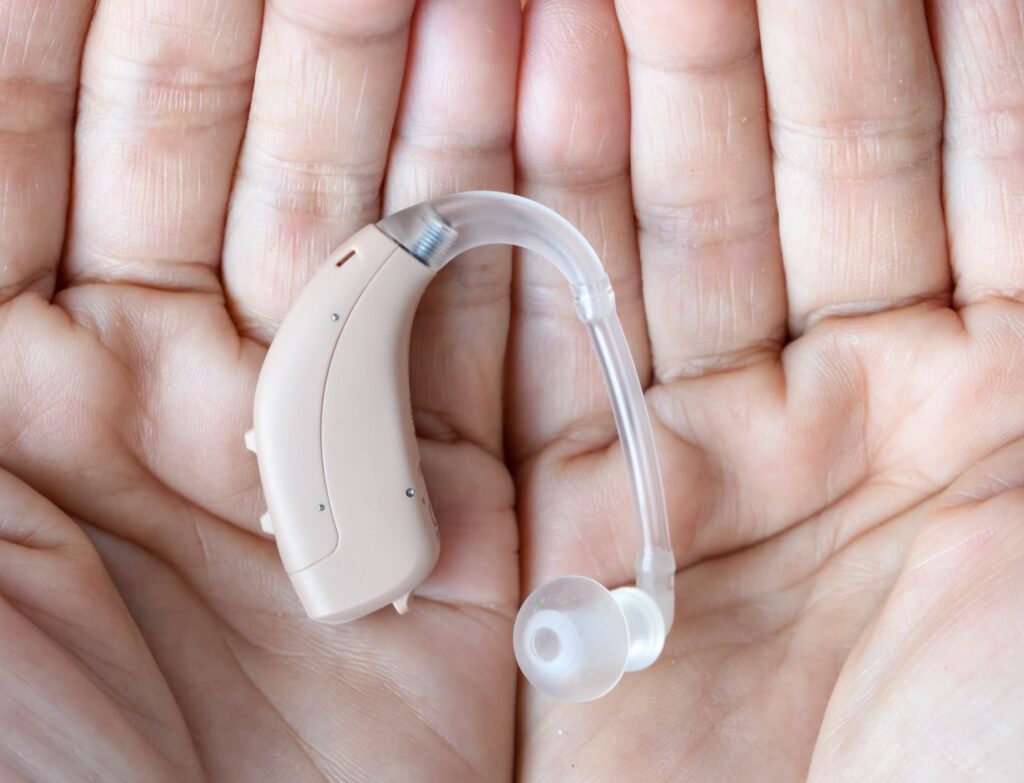
At Metro Hearing, we’ve helped many patients obtain their first hearing aids, as well as replace their old ones. Often, patients don’t know when it’s time to replace a hearing aid. In this guide, we’ll tell you what you need to know about the lifespan of a hearing aid.
How Often Should Hearing Aids Be Replaced?
The typical lifespan of a hearing aid is between 3 to 7 years. However, there are many reasons why a hearing may need to be replaced, with wear and tear on the device only being one of them.
As new models become available, with new features and better performance, it can make sense to replace a hearing aid before the old one is worn out.
While technology is improving over time, you may also find that your hearing is worsening over time. Regular visits to a hearing professional can ensure that your current hearing aid is still enough to fit your needs.
Over time, you may find that your old hearing aid is still functioning well but isn’t comfortable to wear anymore. In these cases, replacing the hearing aid can provide a better, more comfortable fit.
What Affects Hearing Aid LifeSpan?
The factors mentioned above are only a part of the discussion about how long hearing aids last. Hearing aid lifespan can be hard to predict because so many variables go into how long one will last.
Some of the biggest factors in how long hearing aids last include:
- Regular Maintenance: Like any other equipment, hearing aids require proper maintenance and care to extend their lifespan.
- Manufacturer and Model: Different manufacturers and models can vary in their duration period. It’s always best to speak with your audiologist in regard to any questions about your specific hearing aids.
- Usage: Frequent usage of hearing aids can also impact its lifespan.
- Battery Quality: The type and quality of batteries used for powering the hearing aid can impact their longevity.
- Moisture: When a hearing aid is exposed to moisture, either through water or high humidity, it can decrease the device’s lifespan.
- Heat and Sunlight: Similarly, prolonged exposure to heat and direct sunlight can deteriorate the hearing aid’s materials.
Maintenance of Hearing Aids
Regular maintenance was at the top of the list of things that can impact a hearing aid’s lifespan. The manufacturer will likely provide a list of instructions for how to care for your hearing aid. In addition to whatever information they provide, keep the following ideas in mind as you use your device:
- Daily Cleaning: Wipe your hearing aids clean daily with a soft, dry cloth.
- Gentle Handling: Be gentle when inserting or removing your hearing aids.
- Harsh Elements: Keep them away from heat and moisture that can damage them.
- Proper Storage: Hearing aids should be stored in a dry, cool place when not in use.
- Pets and Children: Store hearing aids away from pets and children who may damage them.
- Battery Care: Change batteries regularly and remove them for prolonged storage.
- Hair Product Usage: If you use hair products, apply them before putting the device in.
- Power Control: Conserve battery and lifespan by turning them off when not in use.
- Change Filters: Change any wax filters according to manufacturer recommendations.
If You Need Hearing Aid Replacements, Contact Us Today
Is it time to replace your hearing aid? Whether you need a new hearing aid or just need some help deciding whether a replacement is right for you, we can help. Contact Metro Hearing today to set up an appointment in one of our Phoenix area locations for a more thorough hearing test and for advice on the best course of action to improve your hearing.
Image credit: Zay Nyi Nyi, Shutterstock

